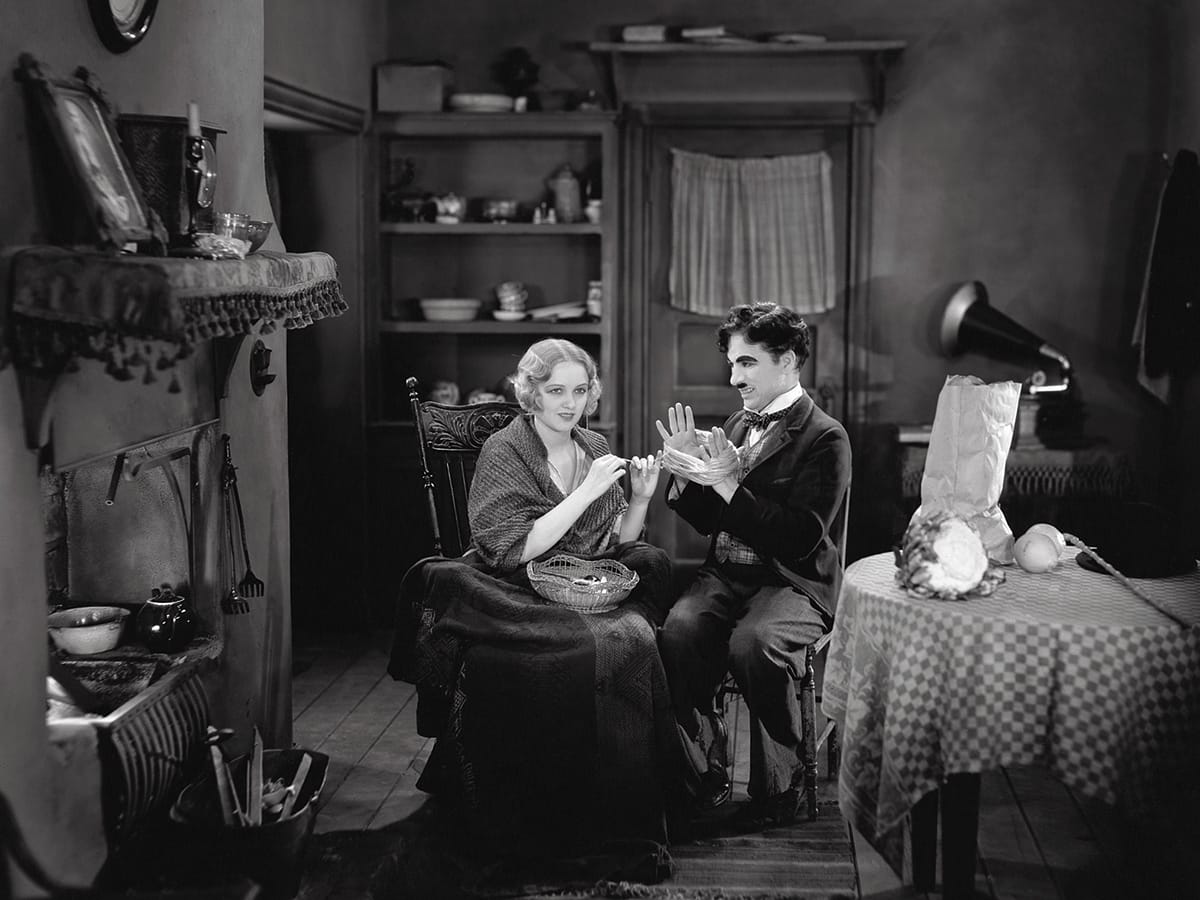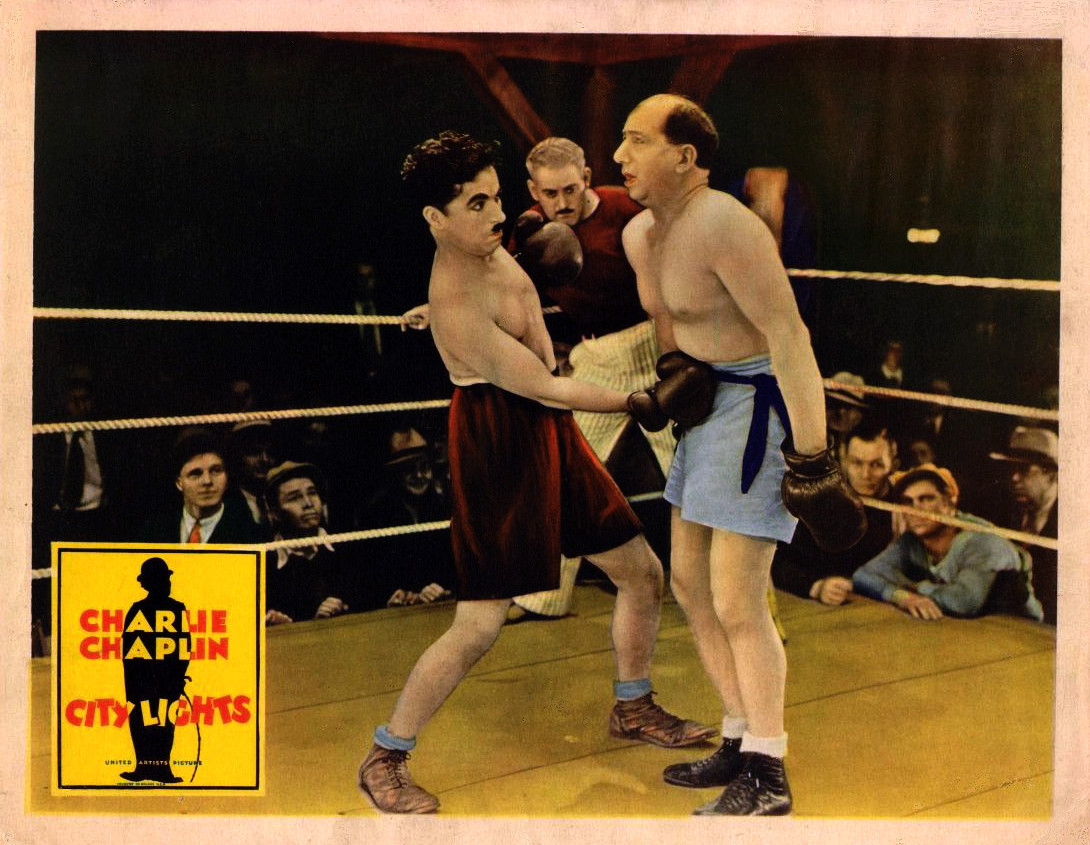
With the aid of a wealthy erratic tippler, a dewy-eyed tramp who has fallen in love with a sightless flower girl accumulates money to be able to help her medically.
“Charlie Chaplin, master of screen mirth and pathos, presented at the George M. Cohan last night before a brilliant gathering his long-awaited non-dialogue picture, City Lights, and proved so far as he is concerned the eloquence of silence. Many of the spectators either rocking in their seats with mirth, mumbling as their sides ached, "Oh, dear, oh, dear," or they were stilled with sighs and furtive tears. And during a closing episode, when the Little Tramp sees through the window of a flower shop the girl who has recovered her sight through his persistence, one woman could not restrain a cry.
Mr. Chaplin arrived in the theatre with a police guard, and after greeting some of his many friends in the house he took an aisle seat beside Miss Constance Collier. When the picture came to an end he went to the stage and thanked those present for the enthusiasm with which they had received his work.
It is a film worked out with admirable artistry, and while Chaplin stoops to conquer, as he has invariably done, he achieves success. Although the Little Tramp in this City Lights in some sequences is more respectable than usual, owing to circumstances in the story, he begins and ends with the same old clothes, looking, in fact, a trifle more bedraggled in the last scene than in most others of his comedies. He has the same antics, the same flip of the heel, the same little cane, mustache, derby hat and baggy trousers.”
Morduant Hall1
“If only one of Charles Chaplin's films could be preserved, City Lights (1931) would come the closest to representing all the different notes of his genius. It contains the slapstick, the pathos, the pantomime, the effortless physical coordination, the melodrama, the bawdiness, the grace, and, of course, the Little Tramp - the character said, at one time, to be the most famous image on earth.”
Roger Ebert2

- 1Morduant Hall, “Chaplin Hilarious in his ‘City Lights’,” New York Times, 7 February 7 1931.
- 2Roger Ebert, “City Lights,” Rogerebert.com, 21 December 1997.

